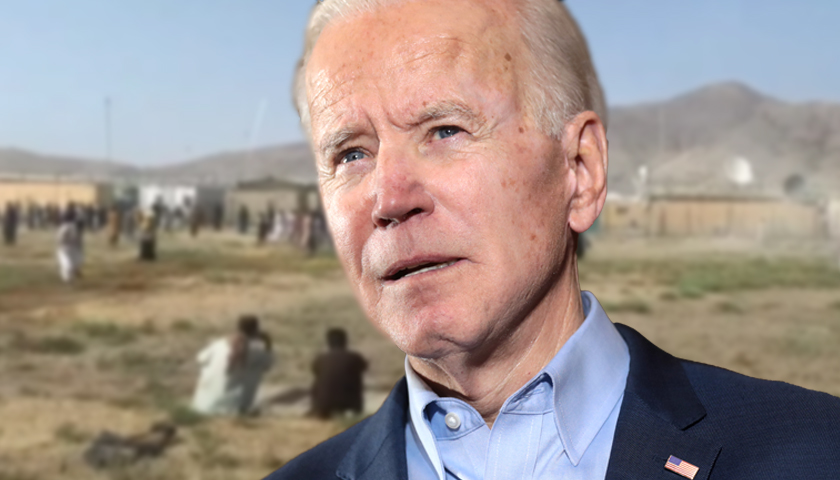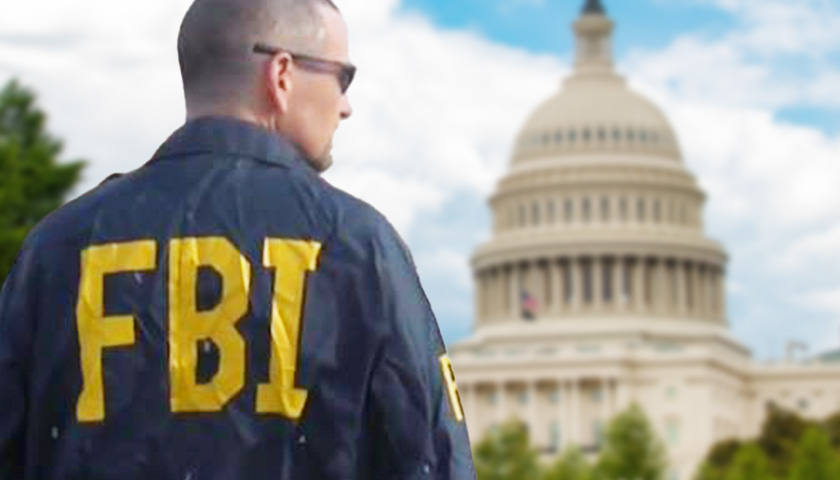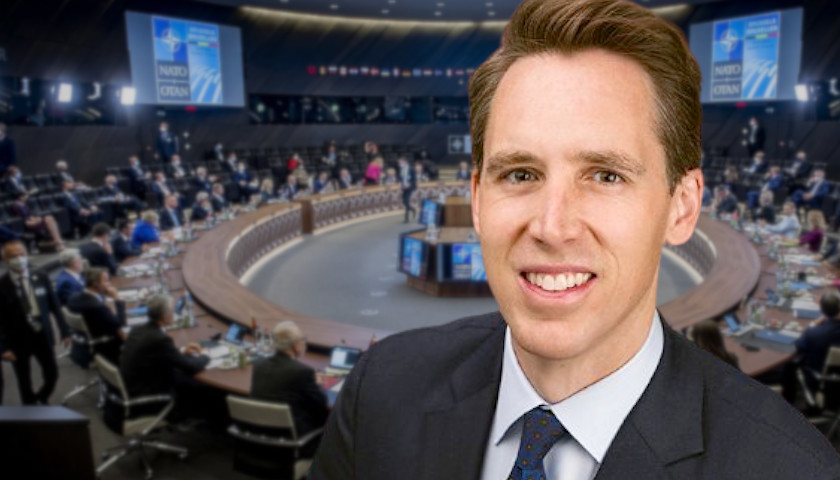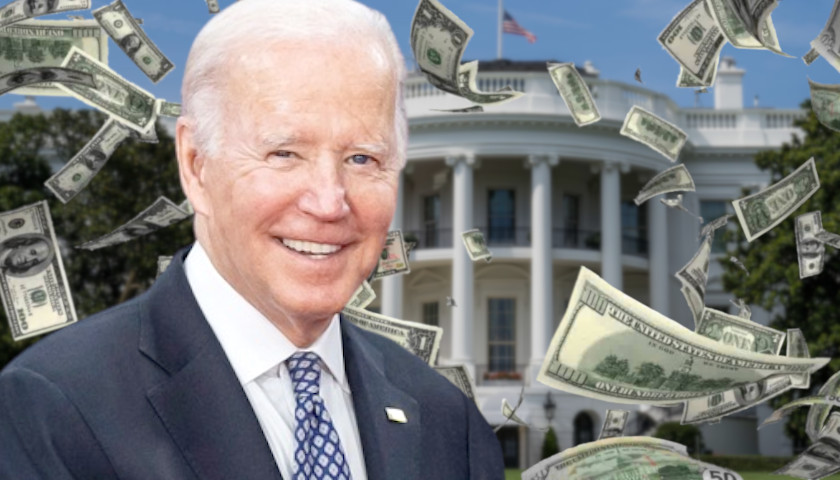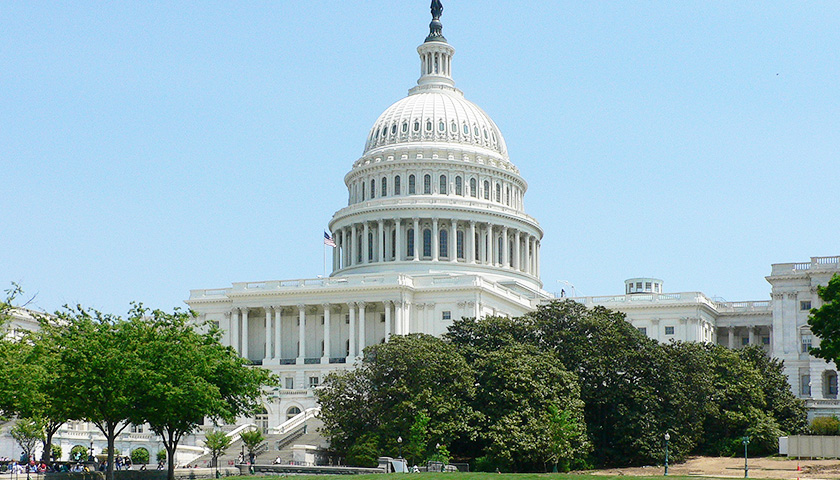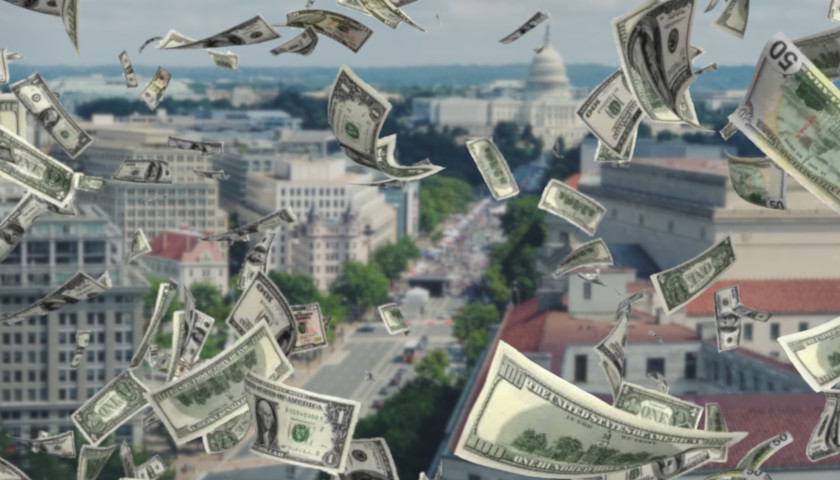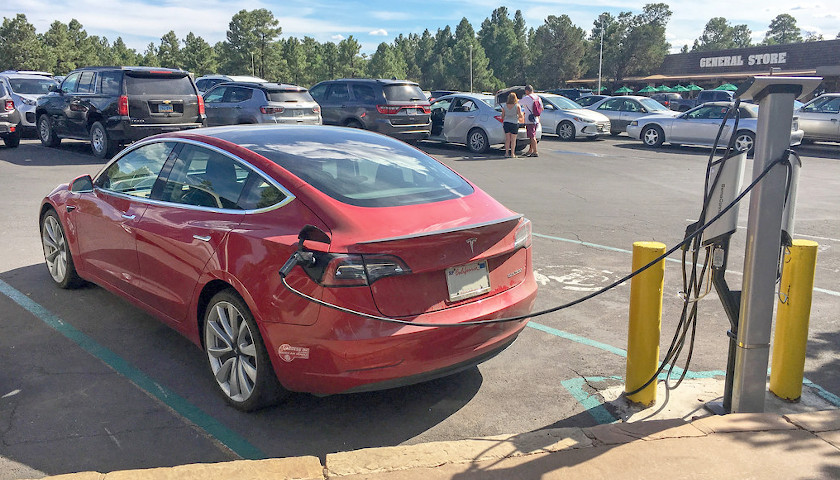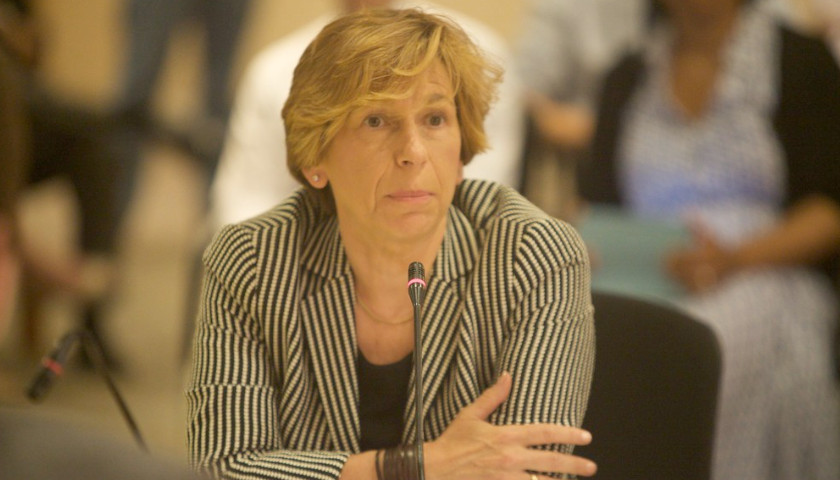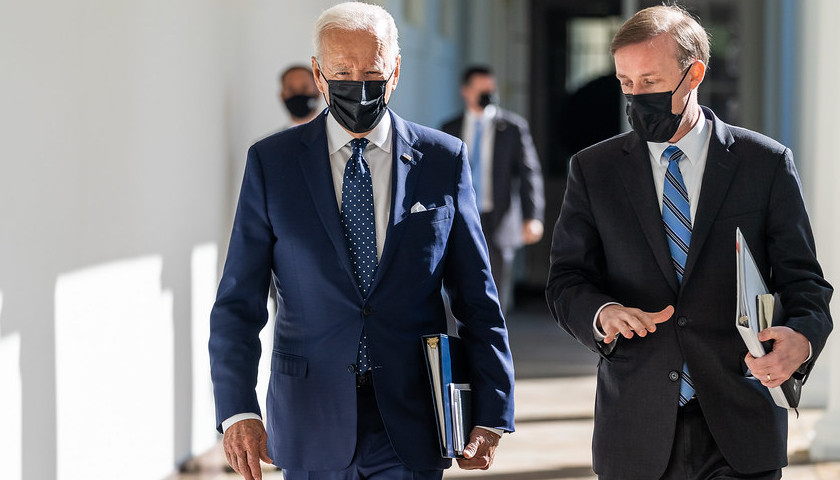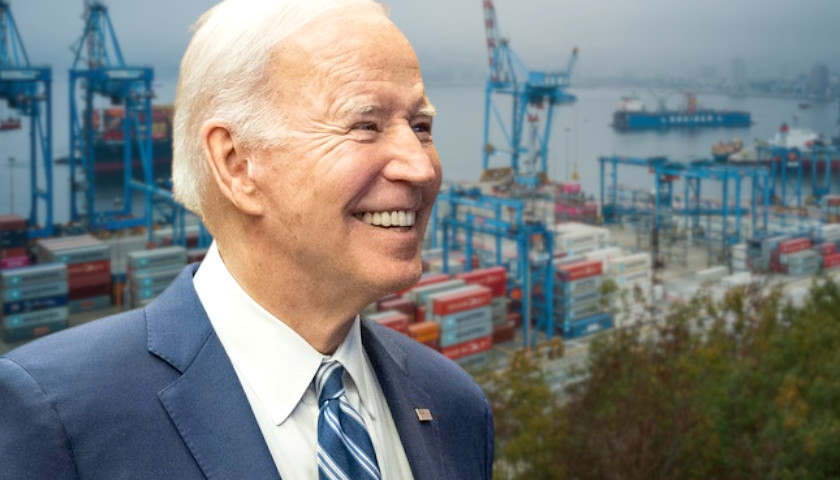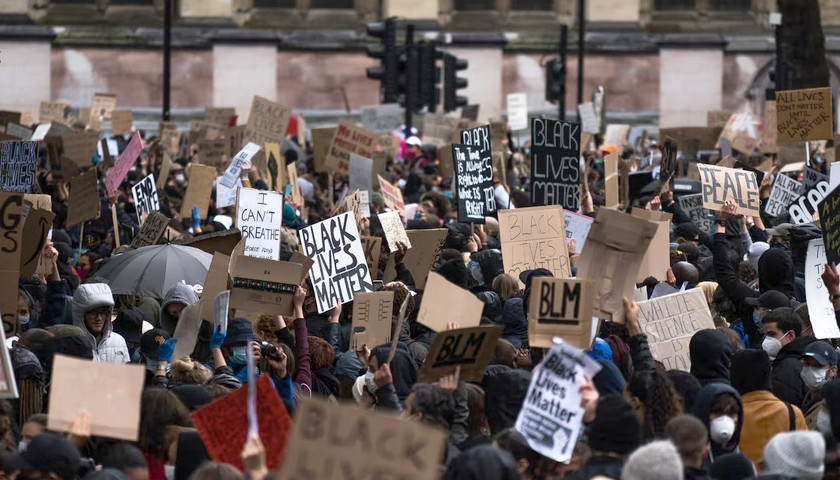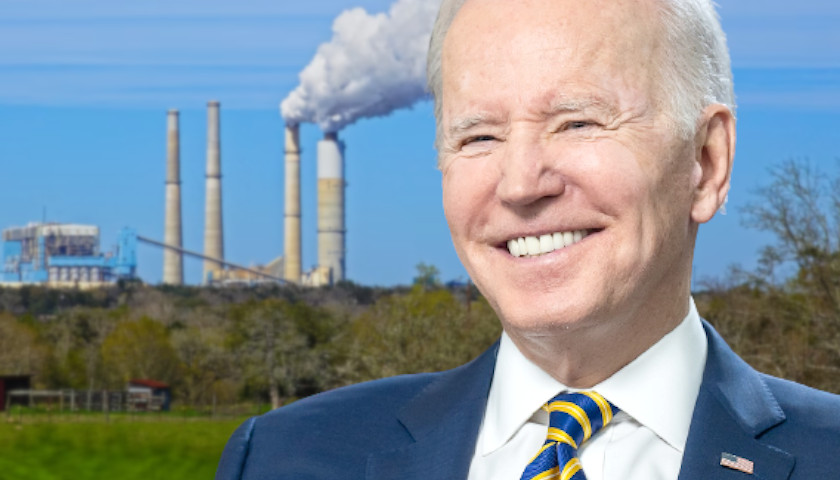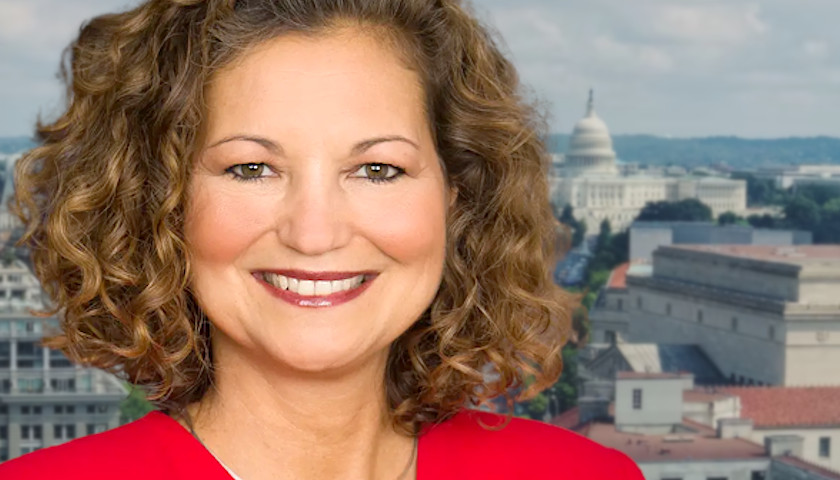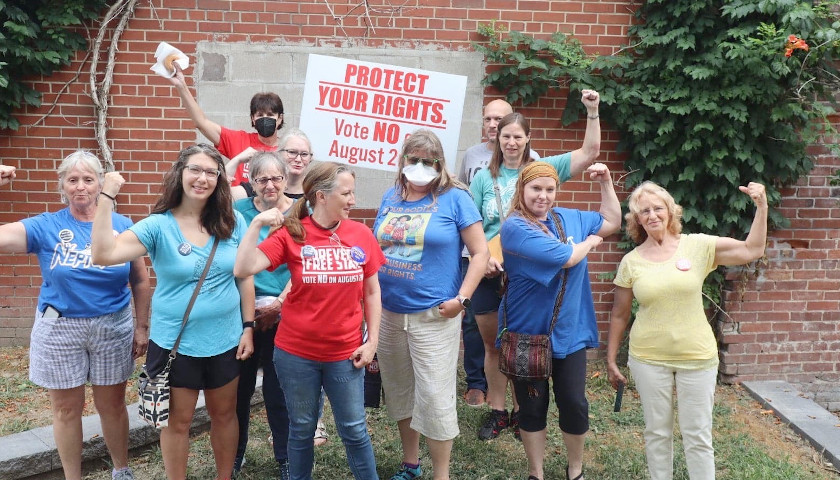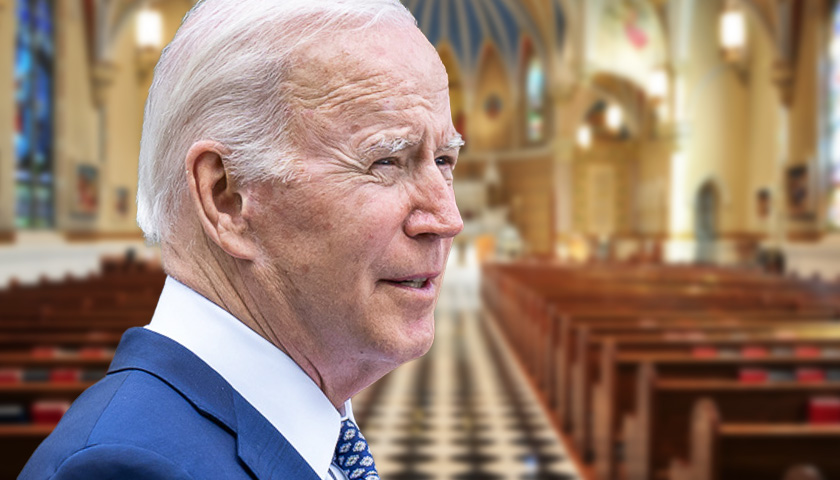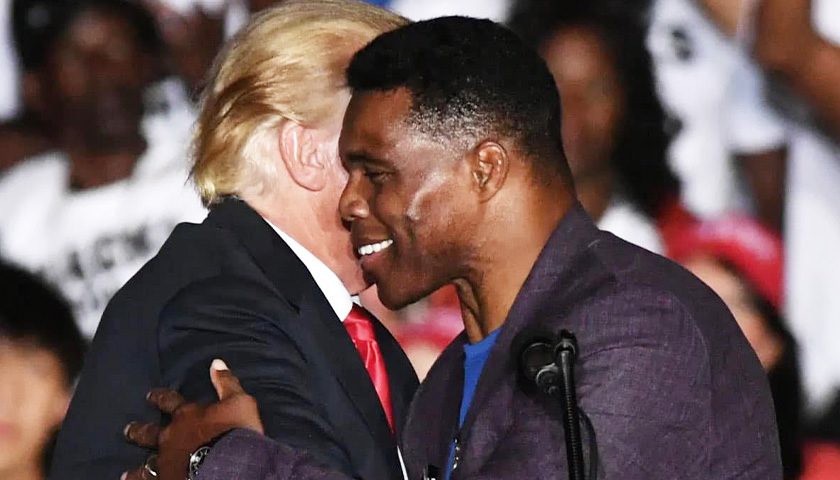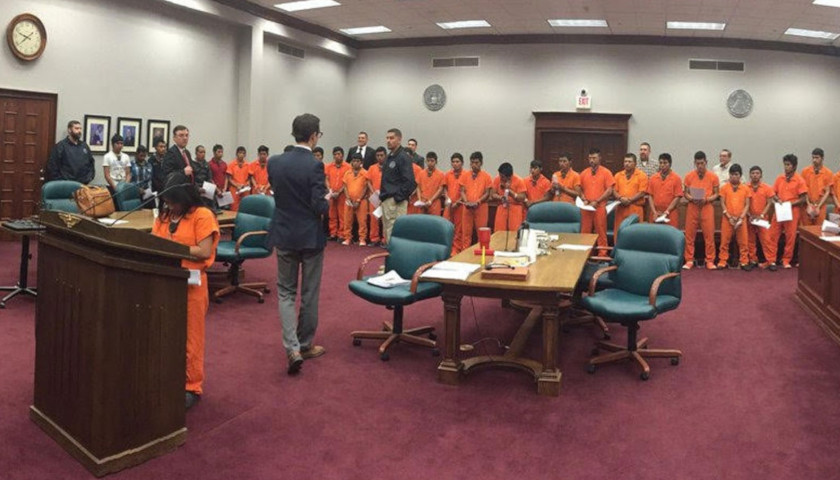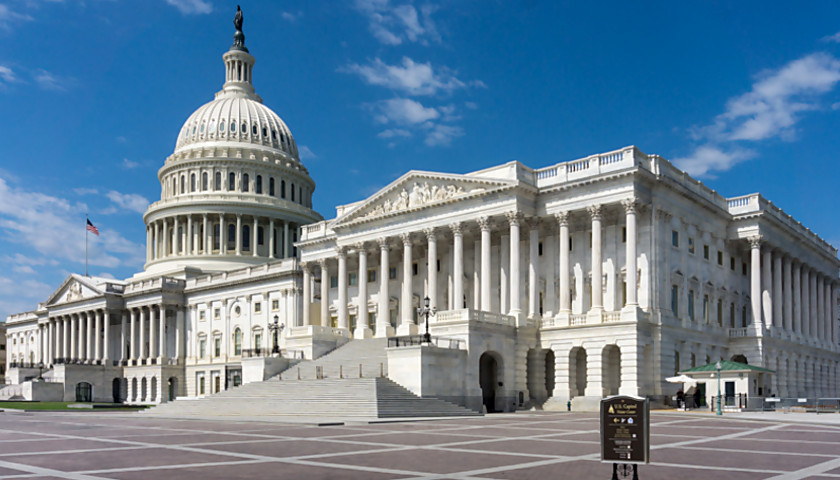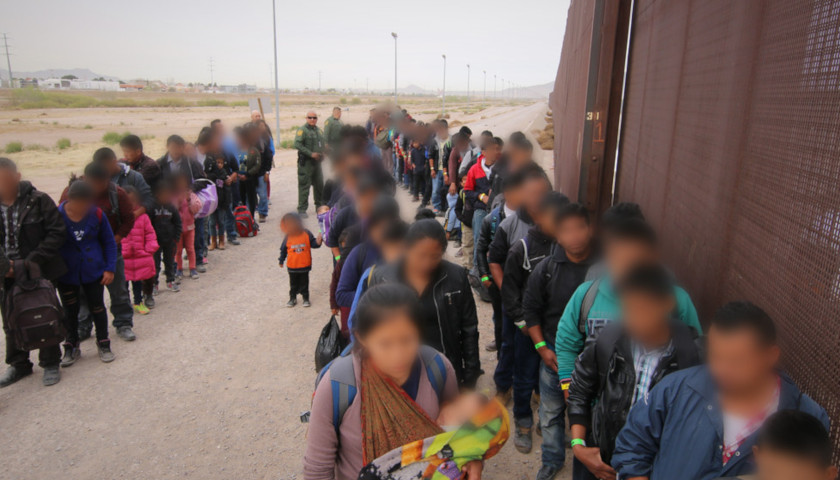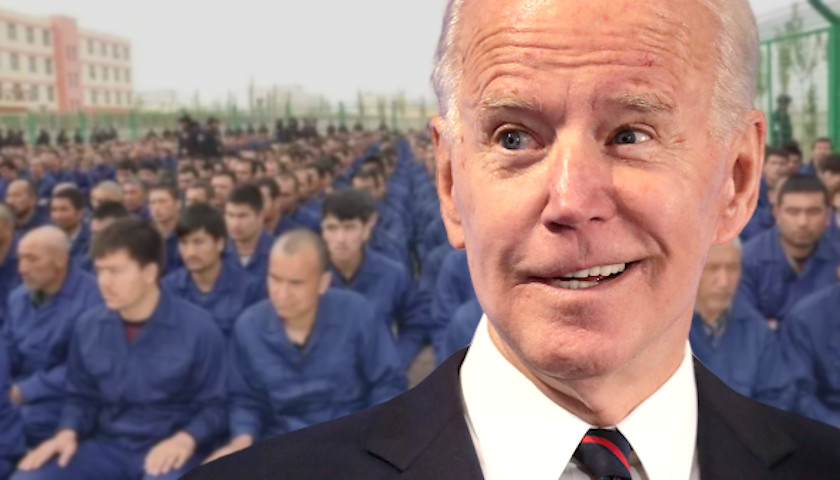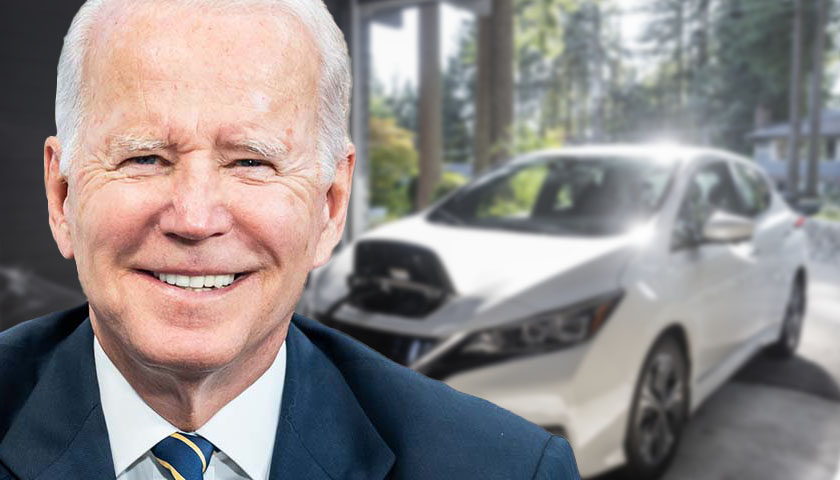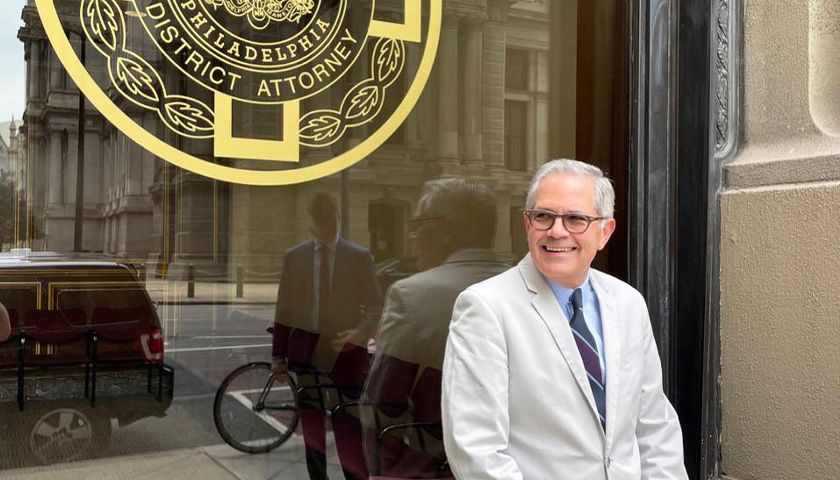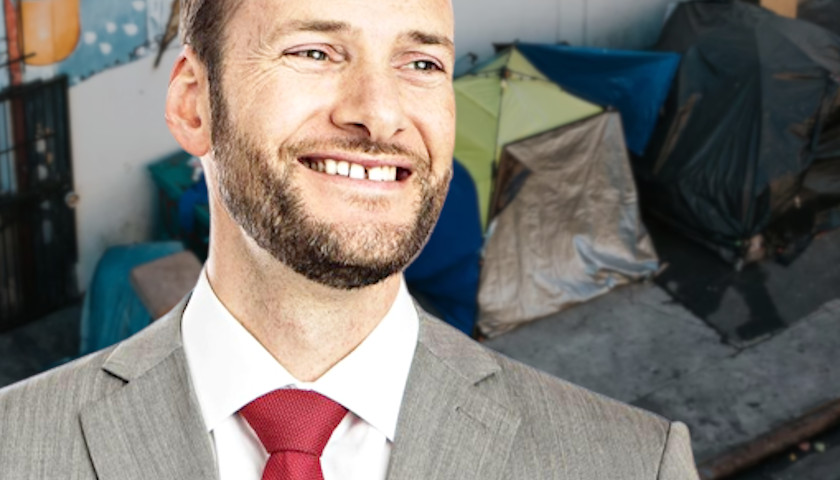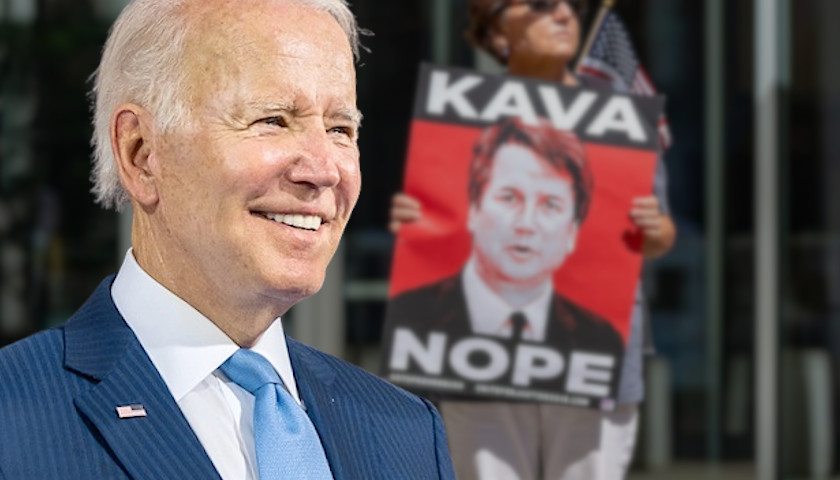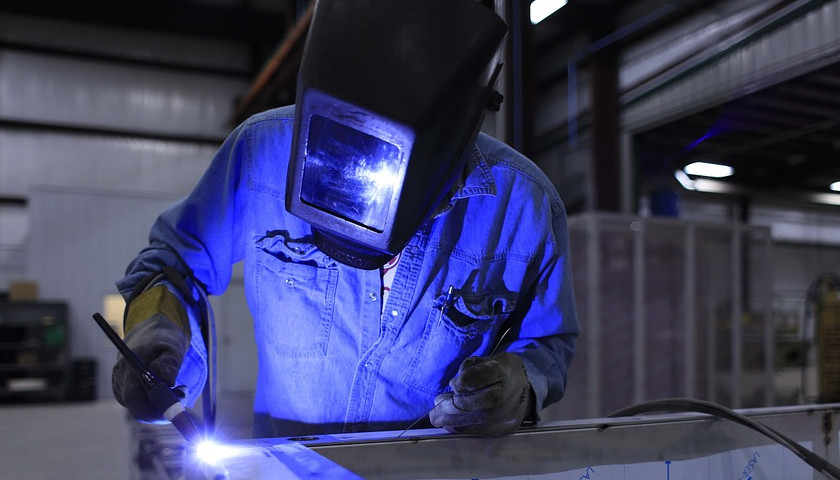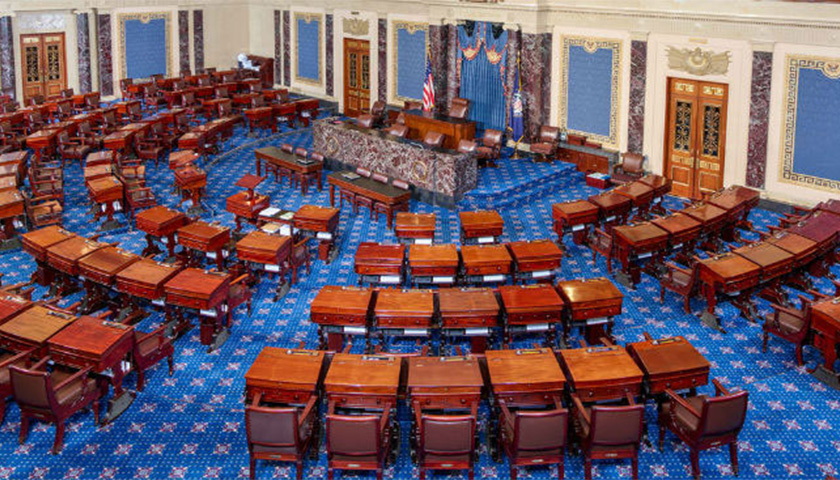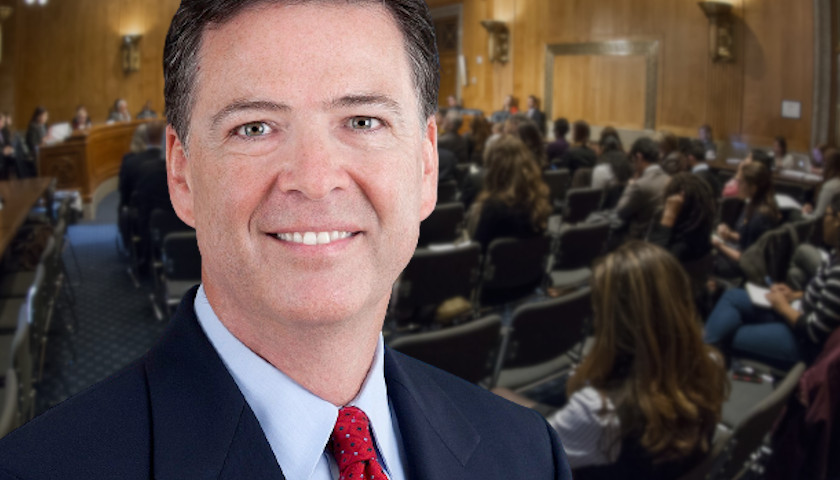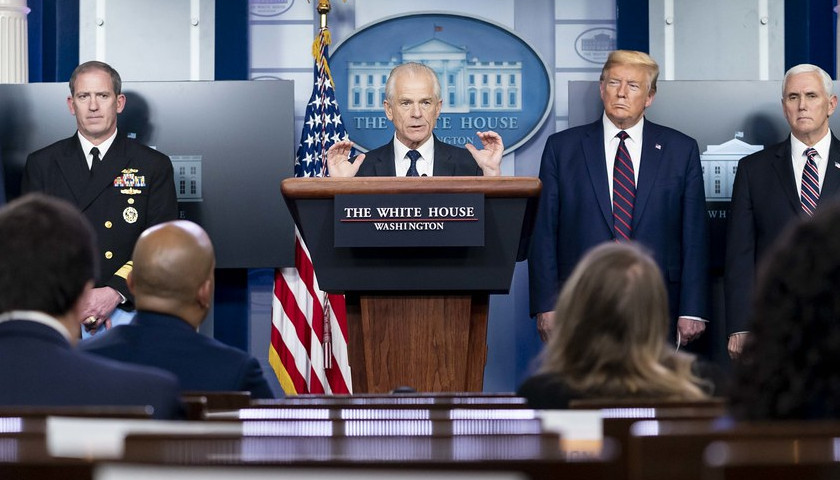The FBI division overseeing the investigation of former President Trump’s handling of classified material at his Mar-a-Lago residence is also a focus of Special Counsel John Durham’s investigation of the bureau’s alleged abuses of power and political bias during its years-long Russiagate probe of Trump.
Read MoreAuthor: RealClearWire
Commentary: Biden Misled Public on Afghanistan
The frantic and deadly U.S. evacuation from Afghanistan was so disorganized that 1,450 children were evacuated without their parents, and senior leaders in Vice President Kamala Harris’ and first lady Jill Biden’s offices, as well as one of the Joint Chiefs of Staff, asked private veteran groups for assistance evacuating certain people from the country.
In the waning days of the evacuation, more than 1,000 women and girls waited more than 24 hours on dozens of buses, desperately circling the Kabul airport and trying to avoid Taliban checkpoints. Many of them were told multiple times they were not allowed to enter the airport. Now, nearly a year since the Taliban took control of the country, fewer than one-third of them have managed to flee the country.
Read MoreCommentary: The FBI Is Now the ‘Federal Bureau of Intimidation’
Nothing symbolizes the decline of the American republic better than the weaponization of justice that we saw last week when the FBI raided the home of former President Trump.
And nothing better represents the divide that now exists between Democrats and Republicans than the fact that some people still have faith in the FBI.
Aren’t they paying attention? Heck, that’s like a citizen of the old Soviet Union saying they had faith in the KGB – yeah, to crush dissent and lock up opponents of the regime in a Siberian gulag.
Read MoreCommentary: Non-College-Educated Taxpayers May Soon Be Responsible for Billions in College Debt
Most Americans have been conditioned to accept some level of incompetence and inefficiency from government – but not to the extent that federal employees paid by our tax dollars simply admit that they are fundamentally incapable of doing their jobs. Yet shockingly, this is what we are now witnessing with the Department of Education’s failed and convoluted attempt to process claims for student loan cancellation.
Read MoreCommentary: Senator Josh Hawley Is a True National Conservative
In a vote of 95-1, the United States Senate approved the expansion of NATO (North American Treaty Organization) by allowing membership to two new nations Sweden and Finland. The only Senator to vote “no” was Senator Josh Hawley (R-MO). Senator Rand Paul (R-KY) voted “present.” In his floor speech before the vote Sen. Hawley made a powerful argument that expanding NATO is not in America’s national interest. Whether in foreign policy, trade policy and trying to resurrect manufacturing, fighting against the radical woke social agenda, defending our borders, or defending the Constitution, Sen. Josh Hawley is demonstrating that he is not only a conservative leader, but is truly fighting to place America First and protect our nation’s sovereignty.
Read MoreCommentary: The Media Plays Along as FBI Undercounts Armed Citizen Responders to Mass Killers
The shooting that killed three people and injured another at a Greenwood, Indiana, mall on July 17 drew broad national attention because of how it ended – when 22-year-old Elisjsha Dicken, carrying a licensed handgun, fatally shot the attacker.
Read MoreCommentary: A History Lesson for President Joe Biden
A nation emerging from a significant pandemic and an economic downturn awaited President Joe Biden in early 2021. President Warren G. Harding inherited a similar situation after winning the 1920 election in a landslide. But Harding overcame it by getting government out of the way. The economy recovered quickly—whereas Biden enacted bad progressive policies that have resulted in a double-dip recession with 40-year high inflation.
Read MoreCommentary: Long-Term Study Finds That Higher Corporate and Personal Taxes Lower Real GDP
by Ross Pomeroy One of the main planks of President Biden and congressional Democrats’ agenda is making corporations and high-earning Americans “pay their fair share” through higher taxes. But a recently published analysis in the journal SAGE Open delving into sixty years of U.S. economic data from 1960 to 2020 suggests that their…
Read MoreCommentary: The Foreign-Donor Loophole
With so much recent finger-pointing in Washington over foreign influence in U.S. elections, it seems as if lawmakers would be doing everything they could to try to close loopholes that allow illegal political donations from China, Russia, and other overseas interests into U.S. campaigns without detection.
A group of GOP House members introduced legislation to do just that as far back as 2015. Their bill attracted significant bipartisan support, but stalled amid partisan sniping over Democrats’ pursuit of the now-discredited Trump-Russia collusion allegations.
Read MoreCommentary: Electric Car Drivers May Not Be Pumped over Privacy-Jolting Mileage Taxes
The environmental impact of electric cars may still be unknown, but leaders are growing concerned about the threat they pose to the financing of the nation’s highway system. Because freeways and bridges are funded, in large part, through federal and state taxes on gasoline and diesel fuel, the battery-powered future will test whether roads can just be paved with good intentions.
Read MoreCommentary: The Decline and Fall of Newspapers
A few years ago, you would have unfolded your newspaper and read opinion and analysis like this. Those days are gone. Today, most of us get our news and commentary online, perhaps supplemented by network or cable television, although TV viewership is far smaller than in the days of “The Big Three.” Buried alongside those iconic broadcasters is the public’s confidence in news from all sources. Only 16% of Americans say they have a “great deal” or “quite a lot” of confidence in newspapers, only 11% in TV news. Those numbers keep sinking. Today, if Walter Cronkite ended his broadcast, “And that’s the way it is,” most people would just smirk.
Read MoreCommentary: Amid Recession Fears, Economically Free States Continue to Outperform
Florida Gov. Ron DeSantis recently responded to questions about California Gov. Gavin Newsom’s ads airing in Florida, “It’s almost hard to drive people out of a place like California given all their natural advantages, and yet they are finding a way to do it.” He noted that California is hemorrhaging its population because of bad progressive economic policies so that they could be more free
Florida ranks third in the nation for economic freedom, according to the Fraser Institute. And California ranks second to last.
Read MoreCommentary: State Secretaries of State Play a Critical Role in Elections
Most state residents think of their secretary of state as someone who is in charge of their department of motor vehicles. Few realize that the decisions of secretaries of state could determine who becomes president. Dozens of states will hold elections this fall that will determine the officials who will run state elections in 2024 – and these officials could play crucial roles in the next presidential vote count.
Read MoreCommentary: The 13th Amendment Doesn’t Provide Basis for National Abortion Protection
After Dobbs, where can pro-choice advocates look in the Constitution to support abortion? One professor believes she has found the answer in the Thirteenth Amendment, the provision banning slavery that was ratified in the immediate aftermath of the Civil War. Lisa Crooms-Robinson, a professor at Howard University School of Law, reasons out of a wish for Congress to pass the Women’s Health Protection Act of 2021. The bill, among other provisions, would codify the abortion protections found in Roe v. Wade and Planned Parenthood v. Casey, both of which the court just overturned.
Read MoreCommentary: Federal Trade Commission May Finally Bring Down the Hammer on Pharmacy Benefit Managers
Amidst rising prescription drug prices, consumers may finally be getting some much-needed relief if the Federal Trade Commission (FTC) follows through with a recent pledge to investigate Pharmacy Benefit Managers (PBMs) for anticompetitive practices.
Read MoreCommentary: Bipartisan CHIPS Act Tackles U.S. Dependence on China
China’s rise to rival the United States as a global superpower has been unprecedented. The last war between empires was centered around an arms race, and ended with the U.S. standing strong and solitary atop the world as the Soviet Union fell. But a new race has begun in those 30 years since. China sprinted ahead of the U.S., this time in the field of technology, and aims to stay there. But Congress and the Biden administration have other ideas.
Read MoreCommentary: Reducing Patient Access to New Medications Is Progressives’ Latest Medicare Price Fixing Scheme
As negotiations on their tax and spending bill continue, Senate Democrats are working on a legislative proposal to have the government fix the prices of Medicare prescription medications. Though the details of the 190-page amendment differ in certain respects from earlier versions, the indisputable result would be the same: Reduced patient access to prescription drugs.
Like most giant regulatory schemes, the draft proposal is characteristically complex with numerous provisions, including detailed data collection, new mandates, tax penalties on drug manufacturers, free vaccines, and a cap on out-of-pocket costs. But the heart of the bill is the creation of a Drug Price Negotiation Program administered by the Secretary of the U.S. Department of Health and Human Services (HHS).
Read MoreCommentary: The Master of Politicizing Schools Says Education Is Too Politicized
Last week, American Federation of Teachers President Randi Weingarten tweeted the results of a poll of teachers showing “nearly 9 out of 10 respondents say schools have become too politicized.” As she put it, “AFT members were on the frontlines of the first wave of the pandemic, but in many ways the last year was even harder” due to “mask wars, culture wars, the war on truth, or the devastation in Uvalde.”
Read MoreCommentary: New Cancer Diagnostics Are Being Misdiagnosed in Their Value
Various methods of cancer screening, such as mammograms and colonoscopies, have been highly beneficial to patients across the world by allowing more effective treatments to be applied earlier. The most recent innovations for diagnosing cancers include genomic blood tests that can detect more cancers at earlier stages than existing screens. If reimbursed and adopted widely, they offer a great potential advance in the war on cancer but unfounded critiques of them misdiagnose their value.
Read MoreCommentary: Solar Panel Programs Increase Your Electricity Bill
Why are electricity prices rising so fast?
Over the past quarter century, electricity prices across America have increased by an average of 1.8 percent per year, from $8.38 per kWh in 1994 to $13.01 in 2019. Then in January this year both Entergy and Mississippi Power increased their rates by $7.81 per month and $5.27 per month respectively, affecting over half a million Mississippi residents.
Read MoreCommentary: The Bullish Meaning of Hyundai and Kia Cars Everywhere You Look
The next time you’re in traffic, stop and look at the cars surrounding you. If on a city street, also look at the cars passing you as they go in the opposite direction. In a sense it’s fascinating.
Doing this the other day on the Key Bridge (it connects Washington, D.C. and Arlington, VA), the variety of cars was really something. Mostly foreign cars. Lots of Mercedes and BMWs, numerous Toyota, Honda and Nissan vehicles, and somewhat surprisingly, countless Kia and Hyundai models. About the surprise expressed, it’s remarkable how quickly the twin Korean brands have built enormous market share in the world’s greatest car market.
Read MoreCommentary: Senior Biden Officials Are Entangled in Durham’s Criminal Russiagate Probe
Several individuals connected to a 2016 Hillary Clinton campaign plot to cast Donald Trump as a covert Kremlin collaborator are working in high-level jobs within the Biden administration – including at least two senior Biden appointees cited by Special Counsel John Durham in his “active (and) ongoing” criminal investigation of the scheme, according to recently filed court documents.
Read MoreCommentary: Rights Abuser China Emerging as Dubious Linchpin of Biden’s Lithium-Battery Supply Chain
A Chinese-dominated mining company has procured millions of dollars in American subsidies to extract lithium in the United States – but, given a dearth of U.S. processing capacity, the mineral is likely to be sent to China with no guarantee that the end product would return as batteries to power President Biden’s envisioned green economy.
Read MoreCommentary: ‘Woke’ Corporate Support of Black Lives Matter Has Deadly Consequences
You’ve heard the chants in the streets of America: “Pigs in a blanket, fry ‘em like bacon.”
You’ve seen the graffiti scrawled on walls and monuments and broken windows in the wake of “peaceful protests”: ACAB, which stands for “All Cops Are Bastards.”
Read MoreCommentary: Joe Biden’s War on Fossil Fuels
Try as they might to mitigate the severe energy crisis plaguing the U.S., the Biden administration’s attempt to shore up supply is a few wellheads short of an oil rig.
With gasoline prices averaging over $4.60 per gallon and several electric grid operators warning of rolling blackouts, increasing the supply of America’s most critical energy sources is vital. Fossil fuels account for 80% of America’s energy usage, yet the administration is intent on curbing oil and gas supply, cutting gasoline refining capacity, and making it more challenging to meet rising electric demands.
Read MoreJack Miller Center Announces New President, Aggressive National Civics Education Plan
As part of an ambitious, five-year strategic plan to reinvigorate a civic education grounded in American founding principles and history, the Jack Miller Center has named Hans Zeiger as its next president. Zeiger will begin his new role on August 1.
Founded in 2004, the Jack Miller Center is a nonprofit civic education organization based in Philadelphia that works with educators at the secondary school and undergraduate levels to instill thoughtful and engaged citizenship among students.
“Biased, politically motivated perspectives are pouring into the curriculum of our schools unchecked, and parents and citizens are pushing back,” said JMC founder and chairman Jack Miller. “Americans want better civics for their kids, and I believe Hans Zeiger is the right person to lead our national effort.”
Read MoreCommentary: Biden National Labor Relations Board Counsel Rewrites Labor Law History
Very soon after being confirmed in a razor-tight U.S. Senate vote last year as general counsel for the powerful National Labor Relations Board (NLRB), Jennifer Abruzzo, formerly a lawyer for the radical Communications Workers of America union, made her agenda plain to all.
Clearly acting on the wishes of the man who nominated her for the job of NLRB general counsel, Big Labor President Joe Biden, Abruzzo broadcast her intention to wield the power of her office to help union officials grab monopoly-bargaining power over millions of additional workers.
Read MoreCommentary: First Vote on Abortion After Roe Reversal
Minutes after the Supreme Court overturned Roe v. Wade and the 49-year-old constitutional right to abortion, President Biden addressed the nation. “Voters need to make their voices heard. This fall, Roe is on the ballot.”
Make that late summer. On Aug. 2, Kansas will become the first state to vote on reproductive rights since the landscape-altering U.S. Supreme Court decision Dobbs v. Jackson Women’s Health Organization, which took away the federal guarantee of abortion and gave the issue back to the states.
Read MoreCommentary: Catholic Voters Sour on Biden, Split over Midterms
Neither Republicans nor Democrats have a clear edge with Catholic voters nearly four months before the pivotal midterm elections that will determine control of Congress and how much of President Biden’s agenda will get passed in the next two years, according to an in-depth new survey of American Catholics.
Read MoreCommentary: Trump’s Endorsement Record Shows the Pieces Line Up Ahead of 2024
Despite the best efforts of the mainstream media and establishment RINOs, President Donald Trump’s primary endorsement record in 2022 is stronger than ever before. With his support, many effective “America First” candidates line up for a solid and consequential Republican majority of patriotic populists that could make all the difference looking toward 2024.
Although there have been a small handful of setbacks in certain primary races, President Trump’s record is still much stronger than any other political figure in America today, with a 94% win rate among his endorsements in primary contests. With over 140 successful primary endorsements this year alone, some of the most important races have been decided entirely on Trump’s selection.
Read MoreCommentary: A Visit to U.S. Immigration Court, Where the Action Is Not Happening
by James Varney NEW ORLEANS—The courtrooms handling illegal immigration cases here are tucked into the fifth floor of a white skyscraper on the bank of the Mississippi River. A few floors below is a Saks Fifth Avenue, reputed to be one of the tony department store’s most profitable locations,…
Read MoreCommentary: Conservative Americans Can No Longer Conduct Business – and Commerce – as Usual
The Supreme Court’s decision in Dobbs v. Jackson Women’s Health Organization was a long-awaited victory for life. While Dobbs did not make abortion illegal, it did empower the residents of all 50 states to democratically determine abortion’s legal status through their elected representatives. Currently, 22 states provide or will soon provide protection for unborn children. The other 28 states place few or no limits on abortion. The abortion battle will now move to the ballot box in each state.
Read MoreCommentary: Electric Vehicles Are a Tool of Tyranny
First, don’t blame the vehicle. It is a tool that might be just what Los Angeles needs to cope with inversions. Electric vehicles are also very good as airport shuttles and for other locations where short, repetitive routes are the primary use. Some may even be fun to drive (except when they catch on fire).
Read MoreCommentary: The 2022 House Midterm by the Numbers
Midterm elections involve high stakes, a great deal of groundless guessing, and lots of numbers – oddly similar to lotteries. Unlike lotteries, though, the many numbers associated with midterm elections are meaningful. The six meaningful midterm “lotto” numbers below should help historically ground your anticipation of what is likely or unlikely to happen in this year’s House elections, as well as set the eventual outcome in its historical perspective. You will have to use your imagination about the numbered ping-pong balls and the machine mixing them up. On to the all-important numbers.
Read MoreCommentary: Keys to GOP’s Hispanic Outreach in Pennsylvania and Nationwide
After this month’s historic special election win in South Texas, Republican strategists nationwide are asking themselves: how can we replicate now-Congresswoman Mayra Flores’s success in flipping an 84% Hispanic district to the GOP? Meantime, Democrats are burying their heads in the South Texas sand as Hispanic voters flee their party.
It’s not rocket science to appeal to Hispanic voters and persuade them to vote Republican. My firm’s work with the Hispanic Republican Coalition of Pennsylvania shows how to do it.
Read MoreCommentary: Feds Ignore Illegal Alien ID Theft Plaguing Americans as U.S. Coffers Fill
The historic surge of illegal immigrants across America’s southern border is fueling a hidden crime spree few in Washington seem willing or able to address: widespread identity theft by migrants who need U.S. credentials to work.
An extensive review of government reports, think-tank research, news accounts, and interviews with policymakers and scholars suggests the problem involves millions of people – though measuring it with precision is difficult because of the lack of data provided by authorities.
Read MoreCommentary: Yes, Taxes Can Drive People to Move
Many people will tell that people choose to live somewhere based on factors like the weather or proximity to family, and that taxes don’t enter into the equation. While there is a lot of truth to that understanding, when taxes reach a certain point, they can cause people to alter their behavior. Have you heard of voting with your feet? Here’s how that exact concept is playing out for two Iowa families.
Read MoreCommentary: Biden Administration Must Enforce Uyghur Forced Labor Prevention Act
Slavery has been illegal in the United States for nearly 160 years. And yet, over the past two decades, American businesses and consumers have once again begun to benefit from the horrific practice.
It’s an extremely uncomfortable truth, and for most Americans, it likely comes as a surprise. Until recently, they probably had no idea that the clothes they wear, the phones they cannot put down, and the solar panels on their roofs were made, in part, by slaves. The same cannot be said of the companies that eagerly ship jobs overseas to China and source materials from concentration camps.
Read MoreCommentary: America’s New Theory of Work Isn’t Working
“I wandered the streets aimlessly, never knowing where my next meal would come from.”
That’s how a man named Riley summarized being homeless, addicted, and unemployed before he came to Watered Gardens, a mission in southwest Missouri.
Read MoreCommentary: Pregnancy Care Centers in the Crosshairs
What would it be like to go to work in the morning and find a death threat spray-painted across the façade of your office? What would it be like knowing that a facility just like yours was recently fire-bombed near Buffalo, New York? Would you keep showing up? Would you continue to put yourself in danger?
Read MoreCommentary: Democrats’ Radical Green Policies Don’t Help, They Hurt
Last week, Michigan Democrat Sen. Debbie Stabenow bragged that on her way to Washington, D.C. she drove past “every single gas station” in her brand-new electric vehicle “and it didn’t matter how high [gas] was.” Apparently, Stabenow’s message to Americans struggling to afford their commute to work and school is to buy an expensive electric vehicle. For Americans – and especially Michiganders like me – Stabenow’s comment is as unhelpful as it is condescending. But Stabenow isn’t the only Democrat embracing a “let them eat cake” attitude. Climate activists are hurting Americans with their green agenda.
The Biden administration has made EVs a pillar of its anti-U.S. energy agenda. Last year, Joe Biden set a goal that by 2030, half of the vehicles sold in the country would be EVs. More recently, Biden pledged to use taxpayer dollars to build EV charging stations across America. And just a few weeks ago, Transportation Secretary Pete Buttigieg suggested that families anxious about rising gas prices should just buy an EV, which have an average price tag of more than $60,000. Meanwhile, in more than a dozen states and the District of Columbia, drivers are paying more than $5 for a gallon of gas. Painfully high fuel prices aren’t an accident. They’re the momentum driving Biden’s energy “transition.”
Read MoreCommentary: It’s Time to Impeach Larry Krasner
Philadelphia is in a crime crisis, and District Attorney Larry Krasner has been willfully derelict in doing anything to stop it. Since he will not stand up for the people of Philadelphia and the Commonwealth of Pennsylvania by enforcing the laws to keep people safe, we will.
Thomas Paine once wrote: “That which we obtain too easily, we esteem too lightly.” Krasner has created an environment where breaking the law is easily gotten away with, and where Philadelphia criminals need not fear the tough-on-crime laws already on the books.
Read MoreCommentary: The Criminal Order Beneath the ‘Chaos’ of San Francisco’s Tenderloin
The epicenter of the political earthquakes rattling San Francisco’s progressive establishment is a 30-square-block neighborhood in the center of downtown known as the Tenderloin. Adjacent to some of the city’s most famous attractions, including the high-end shopping district Union Square, the old money redoubt of Nob Hill, historic Chinatown, and the city’s gold-capped City Hall, it is home to a giant, open-air drug bazaar. Tents fill the sidewalks. Addicts sit on curbs and lean against walls, nodding off to their fentanyl and heroin fixes, or wander around in meth-induced psychotic states. Drug dealers stake out their turf and sell in broad daylight, while the immigrant families in the five-story, pre-war apartment buildings shepherd their kids to school, trying to maintain as normal an existence as they can.
Read MoreCommentary: Kavanaugh Assassination Plot Draws Muted White House Response
The would-be assassin had a knife and a gun and, in the end, cold feet: When Nicholas Roske saw the U.S. marshals standing outside the home of Brett Kavanaugh, the 26-year-old Californian called off his plan to kill the Supreme Court justice and phoned the police to turn himself in instead.
Read MoreCommentary: Cost of Forced Unionism Soars by over 50 Percent
For decades, states like New York, California and Illinois have evidently been paying a high price for allowing dues-hungry labor union bosses to continue getting workers fired for refusal to bankroll their organizations. Year after year, far more taxpayers have been leaving forced-unionism states than have been moving into them. The cumulative loss of taxpayers has been cutting into their revenue bases.
Recently released data from the Internal Revenue Service (IRS) indicate the cost of forced unionism soared by more than 50% in the Tax Filing Year 2019, compared to the year before.
Read MoreCommentary: The Senate Seats Most Likely to Flip in 2022
The 2022 United States Senate elections can best be thought of as the classic battle between the irresistible force and the immovable object. The irresistible force is the playing field. President Joe Biden’s job approval in the RCP Average is currently 39.7%, the lowest of his presidency. That’s about 3.5 points lower than Barack Obama’s job approval was on (midterm) Election Day 2010. President Obama’s job approval only dipped to 40% briefly, in the immediate aftermath of the botched Obamacare rollout, and it never dropped below 40%. President Donald Trump’s job approval spent much of 2017 below this mark, but in the terrible Republican election year of 2018, it never fell this low.
In other words, this is shaping up to be a worse environment than either of the last three midterms, all of which were nightmares for the party in power.
Read MoreCommentary: Four Moral Panics Not Backed by Science
We humans are social animals, with society serving as the glue that binds us together. Through our ideals, ethics, and actions, we all have a hand in forming the collective views of society. “Work hard”, “take care of your family”, “don’t commit crime”, are a few basic tenets. But sometimes, often when faced with something novel, society can panic. Rather than try to understand this new trend or thing, frenzied members might view it as a threat and seek to banish it. Sociologists call these moments “moral panics”. More often than not, they’re irrational, with little to no support from scientific evidence. Here are four moral panics not backed by science:
1. Dungeons & Dragons. In the 1980s, spurred by a few attention-grabbing incidents, the media, politicians, and many prominent members of society glommed on to the idea that the tabletop roleplaying game Dungeons & Dragons (D&D) was driving players to psychosis, suicide, and even murder. The fantasy game has players cooperatively imagine themselves as a party of heroes (or villains) in a magical world filled with demons, beasts, and spells.
Read MoreCommentary: FBI Chief Comey Misled Congress’s ‘Gang of Eight’ over Russiagate, Lisa Page Memo Reveals
The FBI deceived the House, Senate and the Justice Department about the substance and strength of evidence undergirding its counterintelligence investigation of President Trump, according to a recently declassified document and other material.
A seven-page internal FBI memo dated March 8, 2017, shows that “talking points” prepared for then-FBI Director James Comey for his meeting the next day with the congressional leadership were riddled with half-truths, outright falsehoods, and critical omissions. Both the Senate and the House opened investigations and held hearings based in part on the misrepresentations made in those FBI briefings, one of which was held in the Senate that morning and the other in the House later that afternoon. RealClearInvestigations reached out to every member of the leadership, sometimes known as the “Gang of Eight.” Some declined to comment, while others did not respond to queries.
Read MorePeter Navarro Commentary: An Illegitimate Court Gets Ready to Convene
As the Select Committee to Investigate the January 6 Attack prepares to stage a show trial of Donald Trump on Capitol Hill this week, I have filed a lawsuit challenging the Select Committee’s gross violations of the Constitution’s separation of powers.
Yes, congressional committees do have the power to investigate. Yet, they can only do so in pursuit of a “legislative function,” e.g., to enact new rules, regulations, or policies.
Read MoreCommentary: San Francisco District Attorney Chesa Boudin’s Recall Shows How the Criminal Justice Reform Movement Doesn’t Work
Two and a half years ago, pre-COVID and before surging crime and fentanyl overdoses gripped San Francisco, District Attorney Chesa Boudin’s left-wing lineage seemed a perfect fit for the liberal bastion by the bay.
Likewise, California Rep. Karen Bass was a barometer of Los Angeles’ transformation into a sprawling progressive metropolis. A former Congressional Black Caucus chairwoman, Bass was a top contender to become Joe Biden’s running mate in 2020 and was considered a likely contender for a statewide office.
Read More

